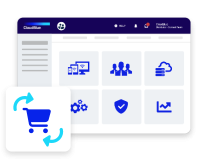Technology procurement is the process of sourcing, purchasing, and managing the tech tools, systems, and services an organization needs to run efficiently.
This often includes hardware, like computers and networking equipment, as well as software solutions, from general office applications to specialized IT platforms.
At its core, technology procurement involves identifying the best suppliers, negotiating contracts, managing relationships, and ensuring that the acquired technology aligns with a business’s overall goals.
With the rapid evolution of IT, the role of technology procurement has become crucial for companies looking to stay competitive and responsive to industry changes.
The Process of Technology Procurement
The technology procurement process begins with identifying what the business needs and then exploring suitable products and vendors to meet those requirements. This process often involves a series of steps: defining requirements, researching potential suppliers, evaluating products and services, negotiating terms, and finalizing a purchase.
Effective technology procurement goes beyond just acquiring goods; it involves strategic thinking and planning to ensure that each purchase is cost-effective, reliable, and capable of integrating with existing systems.
During this process, procurement teams work closely with supply chain managers and IT departments to streamline purchasing and ensure that the new technology fits into the company’s current tech landscape.
For example, a company may need to procure cloud services to improve data accessibility or replace outdated computers for better productivity. Technology procurement ensures that these purchases contribute to both the immediate and long-term goals of the organization.
The Importance of Technology Procurement in Business
In the fast-paced world of information technology, having an efficient procurement process is essential for business success.
The right tech procurement strategy can improve productivity, reduce costs, and even minimize security risks. By securing the latest hardware and software, companies ensure they have the tools needed to stay competitive. Technology procurement also plays a key role in effective supply chain management, helping businesses to maintain a reliable flow of tech resources.
With the growing importance of digital tools, technology procurement has moved from being a back-office task to a strategic function. By carefully sourcing and managing these resources, businesses can keep operations running smoothly while also positioning themselves for future growth.
Today, procurement is not just about getting the best price; it’s about choosing solutions that will support and propel the business forward.













